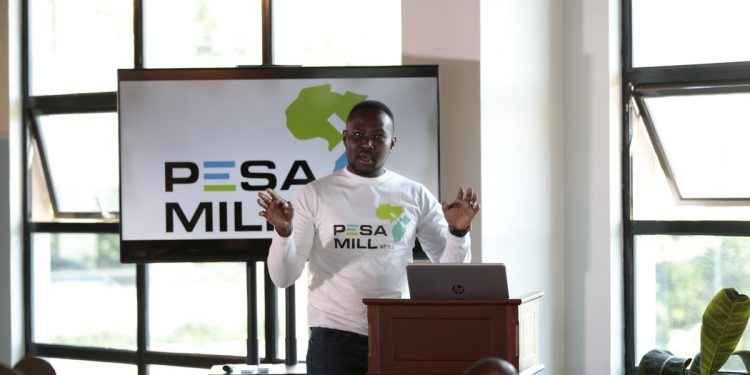The Kenyan Wall Street sat down with Brian Ngugi, the founder of the newly launched cryptocurrency exchange in Kenya, Pesamill Africa. Here is the conversation;
Kindly begin by introducing yourself and your role in the company.
My name is Brian Ngugi and I am the founder and director of Pesamill and I handle the day-to-day operations of the company. I have two people who are by my side constantly, my wife and my brother, but their role is of a supportive nature. Pesamill is also working with various companies who are helping me with the marketing and legal side of things.
African countries including Kenya are still wary about cryptocurrencies. What based your decision to establish a crypto exchange here?
Late last year, bitcoin was at its peak. I got a few people in SA and Kenya asking me to buy bitcoin for them from Australia because one of the exchanges there had the lowest rates in the market. I started digging deeper and deeper and I encountered first-hand the challenges Africans were facing with regards to buying crypto. Some of those challenges were high costs and long KYC processes where it was taking 8 weeks to get authorised. In addition, the issue of credit cards versus where a person lives became a reality.
Somebody mentioned that Africa was paying 40 per cent above everyone else so I couldn’t let that continue. That is where the idea of an exchange originated from.
Did you carry out a survey before creating the exchange?
My background is in law and I looked into everything before I did anything. I also had four people looking into this to tell us whether it was a viable project or not. One of the research papers that we received said we should not waste our time because the market did not understand what crypto is. So a lot of research and time, from me and various agencies went into the exchange.
Briefly explain how the Pesamill Exchange works and the modes of payment available.
We want to make crypto mobile where people can use the Pesamill app on their mobile phones to trade using locally available payment options and withdraw money with the same options.
Pesamill works in a very simple way. We have done our best to make the buying and selling of crypto the easiest process in the market. In just three steps, users can move from login to purchase with ease. For instance, buying is as easy as creating an account, depositing money, and buying a coin while selling simply entails choosing a coin to sell and withdrawing funds immediately the sale is made.
What challenges did you face when creating the exchange?
The biggest challenge we faced was not only being a startup but also a crypto startup. Trust was also an issue we grappled with which is why we decided to self-fund as opposed to launching an initial coin offering.
Being an overseas company that began in Australia, we also faced the challenge of finding the right people back home to help us get the business running in Kenya.
What fees will you charge users for trading on the Pesamill platform?
Our exchange is both a peer-to-peer platform and a centralised exchange. We shall take 0.25 per cent from the buying and selling on the centralised exchange while the peer-to-peer exchange is free.
Crypto exchanges have in the past been victims of hackers including top exchanges like Bitfinex which was hacked in 2016. What measures will Pesamill use to ensure that the crypto in users’ web wallets remains safe and secure?
Pesamill uses standard security measures such as Google’s two-factor authentication and email one-time password. Pesamill is also compliant with anti-money laundering regulations.
Bitcoin bulls are expecting the coin’s price to rally beginning next month to the year-end to about the same price of $20,000 like last year. Do you think there will be another crypto boom?
This year, we will not see a crazy spike like last year where bitcoin hit $20,000. In my opinion, this year will see the rise of African coins with trustworthy brands.
What are your future plans for the exchange?
We want to be the first truly decentralised exchange in the world in the African context. Africa is decentralised through mobile money. It does not make sense that we rely on fiat currencies when we already have a decentralised system. We should, therefore, foster this decentralisation.
In addition, financial institutions have failed to maintain a level of trust that consumers can rely on; Pesamill will change this.
With Pesamill, users will also be able to trade from anywhere and at any time with their phones and at the convenience of local payment methods. Pesamill will also look into supporting businesses that are using cryptocurrencies and it could also create its own token.




